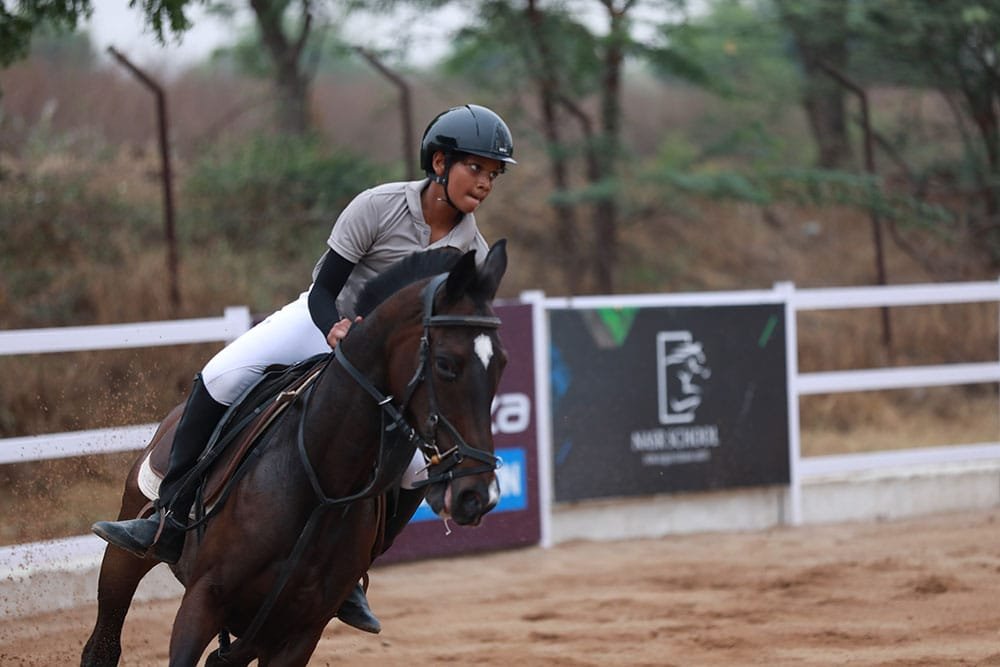Horse riding is an exhilarating experience, but like any skill, it comes with its own set of challenges. From managing fears to working with uncooperative horses, riders often encounter obstacles that can feel daunting. However, with patience, practice, and the right approach, these hurdles can be transformed into stepping stones for improvement. Here’s a guide to overcoming some of the most common challenges in horse riding.
Conquering the Fear of Falling
Fear of falling is a natural concern, especially for beginners or riders recovering from an accident. Overcoming this fear requires both mental and physical preparation.
Start Slow: Begin with groundwork and low-risk exercises to build your confidence. Progress gradually to more challenging tasks.
Wear Proper Gear: A well-fitted helmet and protective equipment provide safety and peace of mind.
Practice Falling Safely: Learning how to fall correctly (e.g., rolling away from the horse) can reduce the risk of injury and boost confidence.
Visualize Success: Use mental imagery to picture yourself riding confidently and handling challenges effectively.
Handling Stubborn or Uncooperative Horses
Dealing with a stubborn horse can test even the most patient riders. The key is understanding the root cause and responding thoughtfully.
Rule Out Discomfort: Check for physical issues such as ill-fitting tack or injuries that could be causing resistance.
Stay Calm and Consistent: Avoid getting frustrated. Use clear, consistent cues and maintain a steady demeanor.
Break Down Tasks: If your horse resists a specific command, break the task into smaller, manageable steps.
Work with a Trainer: Professional guidance can help you address behavioral issues and improve your communication with your horse.
Perfecting Complex Maneuvers
Advanced riding techniques, such as flying lead changes or precise turns, require a high level of coordination and practice.
Focus on Fundamentals: Complex moves often build on basic skills. Ensure your foundational techniques, such as posture and rein control, are solid.
Use Visual Markers: Place cones or markers in the arena to help you stay on course during patterns or turns.
Break It Down: Practice individual components of a maneuver before attempting the whole movement.
Get Feedback: An instructor or experienced rider can provide insights on where you’re going wrong and how to improve.
Building Confidence in Open Spaces
Riding outside an arena can feel intimidating due to unpredictable terrain, distractions, or the horse’s nervousness.
Start Small: Begin with short rides in controlled environments like enclosed fields before venturing into open trails.
Stay Relaxed: Your horse can sense your tension. Maintain a calm demeanor to reassure your equine partner.
Ride with Others: Joining experienced riders can provide guidance and help your horse feel more secure.
Prepare Your Horse: Gradually expose your horse to new environments to build their confidence and trust in you.
Managing Rider Fatigue and Soreness
Horse riding requires physical effort, and fatigue can lead to improper posture or reduced control.
Strengthen Your Core: Core exercises improve stability and reduce strain on your lower back.
Stretch Regularly: Stretching before and after riding helps prevent stiffness and soreness.
Build Endurance Gradually: Increase your riding time slowly to avoid overexertion.
Stay Hydrated and Rested: Proper hydration and adequate rest are essential for peak performance.
Understanding Your Horse’s Limits
Sometimes, challenges arise because riders unintentionally push their horses too hard or too fast.
Know Your Horse’s Fitness Level: Tailor your rides to match your horse’s stamina and skill level.
Recognize Signs of Stress: Sweating, heavy breathing, or refusal to move can indicate your horse needs a break.
Incorporate Variety: Mix up activities to keep your horse mentally and physically engaged.
Be Patient: Progress takes time. Avoid rushing your horse through training milestones.
Balancing Discipline with Compassion
Disciplining a horse for misbehavior or resistance is sometimes necessary but should always be done with care and understanding.
Use Positive Reinforcement: Reward good behavior with treats, pats, or verbal praise.
Set Clear Boundaries: Horses thrive on consistency. Ensure your cues and expectations are clear.
Avoid Harsh Punishments: Harsh corrections can damage trust and lead to fear-based behavior.
Every rider faces challenges at some point in their journey, but each obstacle is an opportunity to grow. Whether you’re overcoming fear, managing a stubborn horse, or mastering advanced maneuvers, remember that progress is a process. By staying patient, seeking help when needed, and maintaining a positive attitude, you’ll not only improve as a rider but also strengthen the bond with your horse.
(What challenges have you faced in horse riding, and how did you overcome them? Share your experiences in the comments!)



